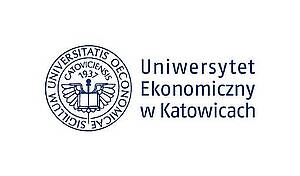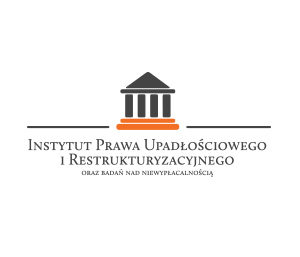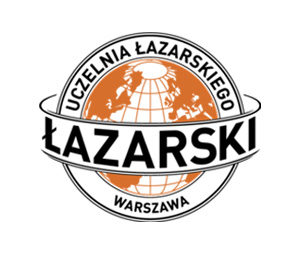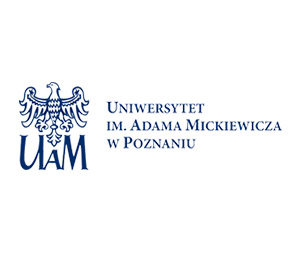Conference date and guidelines
- 28 October 2021
- online, MS Teams (details will be emailed to the registered participants)
The conference organisers, that is:
- Institute for Bankruptcy, Restructuring Law and Insolvency Research of Lazarski University
- The Faculty of Law and Administration of the Adam Mickiewicz University in Poznan
- The Faculty of Law and Administration of the University of Silesia in Katowice
- The Faculty of Law and Administration of the University of Gdansk
- Faculty of Law, Administration and Economics of the University of Wroclaw
- Institute of Legal studies of Opole University
- The University of Economics in Katowice
- Humanitas University in Sosnowiec
cordially invite anyone who may be interested to participate in the:
1st Conference of Doctoral Students of social sciences in the field of bankruptcy, restructuring law and insolvency research
"Bankruptcy and restructuring proceedings from the legal and economic perspective"
Conference objectives
The conference is the first, interacademic event organised entirely by doctoral students and dedicated to them.
We invite doctoral students who conduct their research in the field of social and economic sciences concerning issues of bankruptcy, insolvency and restructuring of entities and natural persons who do not conduct economic activity, to participate in the conference. The conference is to enable young scholars to present the results of their research and exchange ideas pertaining to restructuring proceedings, insolvency and bankruptcy, not only from the point of view of law but also with aspects of economic analysis of legal processes, sociology and the axiology of law. Insolvency, which very often entails poverty, constitutes an important social phenomenon and, as such, is crucial in terms of social and economic development processes in a society. We do hope that the conference will motivate doctoral students to instigate and continue multifaceted research of that phenomenon.
9:30-9:45
Opening of the Conference
9:45-11:15
PANEL I: Axiological justification of the debt relief and recovery functions of bankruptcy law
moderator: Bartosz Sierakowski
- Axiological justification of the dissonance for the purpose of bankruptcy proceedings against a person running and not conducting business activity - Bartosz Skorupa, Institute of legal sciences, University of Opole
- Axiological justification of the debt collection and debt relief function of bankruptcy law in the light of the financial morality of Poles and socio-economic circumstances - Jakub Rak, Lazarski University
- The axiological and social paradigm of consumer bankruptcy in civil procedure - Edward Grzegorczyk, Lazarski University
- Consumer bankruptcy of people being in penitial institutions - the impact of serving a prison sentence on determining the repayment plan and remission of liabilities - Mateusz Wardyn, Lazarski University
11:30-13:30
PANEL II: Protection of creditors' legitimate rights and the phenomenon of unequal treatment of creditors in restructuring and bankruptcy proceedings
moderators: Sławomir Bielski, Jakub Rak
- Mediation in bankruptcy and restructuring proceedings as a legal remedy for satisfying the rights of creditors on the example of selected countries - Marta Krzyśków-Szymkowicz, Lazarski University
- Axiological limitations on the legal possibility of differentiating creditors position within arrangement proposals in restructuring proceedings - Hubert Zieliński, Adam Mickiewicz University in Poznań
Faculty of Law and Administration, Chair of Civil Procedure - Group of companies in restructuring - Grzegorz Kawalec, University of Opole
- The sale of the entire enterprise in bankruptcy and the legal status of the creditor secured on the property of the bankrupt - Olaf Hamberger, University of Wroclaw
- The legal position of the owner of real estate acquired under a fiduciary transfer of immovable property for security, in the event of bankruptcy of the debtor (i.e. previous owner of the property) – Bartosz Sierakowski, Lazarski University, Institute for Bankruptcy and Restructuring Law and Insolvency Studies
14.00-15.30
PANEL III: International Panel (papers in Panel III will be presented in English)
moderators: Rafał Pstrucha, Marta Krzyśków-Szymkowicz
- Debtor's insolvency in the context of the SARS-CoV-2 epidemic, rationale, threats and prospects - Mr. Rafał Pstrucha, Humanitas University, Sosnowiec, Poland
- Economic reasons for the adoption of the Directive on preventive restructuring 1023/2019 and the economic consequences of its introduction - Ms. Larisa Mastilović, Saint-Peterburg State University
- Recovery & Resolution of Financial Institutions: India’s Experience - Ms. Urvashi Shahi, Jindal Global Law School, India
- Pre-packaged insolvency in selected countries – a comparative approach - Ms. Monika Maśnicka, Faculty of Law and Administration of the University of Gdansk, Poland
Cooperation among universities
The conference results from the cooperation between: The Institute for Bankruptcy, Restructuring Law and Insolvency Research of Lazarski University, The Faculty of Law and Administration of the Adam Mickiewicz University in Poznan, The Faculty of Law and Administration of the University of Silesia in Katowice, The Faculty of Law and Administration of the University of Gdansk, the Faculty of Law, Administration and Economics of the University of Wroclaw, the Institute of Legal Studies of Opole University, The University of Economics in Katowice and Humanitas University in Sosnowiec.
Programme Committee constitute:
- PhD, Anna Hrycaj, Lazarski University, Associate Professor
- PhD, Izabella Gil, University of Wroclaw, Associate Professor
- PhD, Joanna Kruczalak-Jankowska, University of Gdansk, Associate Professor
- PhD, Andrzej Torbus, University of Silesia, Associate Professor
- PhD, Rafał Adamus, Opole University and Humanitas University in Sosnowiec, Associate Professor
- PhD, Aleksander Witosz, University of Economics in Katowice, Associate Professor
- PhD, Patryk Filipiak, The Adam Mickiewicz University in Poznan
- PhD, Piotr Gil, Opole University
Organising Committee constitute:
President of the Organising Committee:
- Bartosz Sierakowski, Lazarski University
Members of the Organising Committee:
- Jakub Rak, Lazarski University
- Marta Krzyśków-Szymkowicz, Lazarski University
- Mateusz Wardyn, Lazarski University
- Monika Maśnicka, University of Gdansk
- Jakub Płaziuk, University of Silesia
- Sławomir Bielski, University of Silesia
- Bartosz Skorupa, Opole University
- Grzegorz Adam Kawalec, Opole University
- Jonasz Kita, Opole University
- Piotr Kempiński, The Adam Mickiewicz University in Poznan
- Paweł Bury, University of Wroclaw
- Agnieszka Cybulska-Bienioszek, University of Economics in Katowice
- Maciej Kociołek, Humanitas University in Sosnowiec
- Rafał Pstrucha, Humanitas University in Sosnowiec
Conference Regulations
Conference Regulations, including the rules for submitting papers - click HERE
Registration and fees
Registration
More details HERE
Fees
- For researchers, university students, including doctoral students, and members of the administration of justice - free of charge
- For other participants – 200 PLN



(kopiuj 18)
28 October 2021 saw the First conference of doctoral students of social sciences in the field of bankruptcy and restructuring law and research on insolvency entitled “Bankruptcy and restructuring proceedings from the legal and economic perspective”. The conference was an intercollegiate event organised by doctoral students from the following educational facilities: Lazarski University in Warsaw, Adam Mickiewicz University in Poznań, University of Silesia in Katowice, University of Gdańsk, University of Wrocław, University of Opole, University of Economics in Katowice and HUMANITAS University in Sosnowiec.
The first part of the Conference dedicated to the axiology of debt relief and debt collection functions of bankruptcy law was opened with the paper of mgr Bartosz Skorupa of University of Opole on the analysis of discrepancies between the aims of bankruptcy proceedings against entrepreneurs and non-entrepreneurs. Next, mgr Jakub Rak of Lazarski University contemplated – based on statistical data – the axiological grounds of debt collection and debt relief functions of bankruptcy law in light of Poles’ financial morality and social and economic conditions. The paper on the axiological and social paradigm of consumer bankruptcy in civil procedure was presented by mgr Edward Grzegorczyk of Lazarski University. The panel was concluded with the presentation of mgr Mateusz Wardyn of Lazarski University on the impact of serving a sentence of imprisonment on determining a repayment plan and remission of liabilities in consumer bankruptcy. The first panel was moderated by mgr Bartosz Sierakowski (a doctoral student of the Institute for Bankruptcy, Restructuring Law and Insolvency Research of Lazarski University in Warsaw).
In the second part, dedicated to the issues of protection of legitimate rights of creditors and unequal treatment of creditors in restructuring and bankruptcy proceedings, the problem of eligibility of conducting mediation in bankruptcy and restructuring proceedings as means aimed at satisfying creditors’ rights, on the example of selected countries, was the first one analysed. A paper on this issue was presented by mgr Marta Krzyśków-Szymkowicz of Lazarski University. Afterwards, mgr Hubert Zieliński (Adam Mickiewicz University in Poznań) discussed the axiological limitations of differentiating legal positions of creditors within arrangement proposals in restructuring proceedings. Next, mgr Grzegorz Kawalec of University of Opole focussed on procedural aspects of restructuring groups of companies. The last two papers pertained to the status of creditors with securities established over properties in bankruptcy proceedings – mgr Olaf Hamberger (University of Wrocław) contemplated the issue of a creditor’s status in case of sale of enterprise by a receiver when a security over this enterprise is established for the benefit of such creditor, while mgr Bartosz Sierakowski (Lazarski University) analysed the legal and material status of real estate acquired based on agreement on transfer of title for security in case of bankruptcy of the transferor. The second panel was moderated by mgr Sławomir Bielski (University of Silesia) and mgr Jakub Rak (Lazarski University).
Lastly, the international panel took place. During this panel, papers were presented by two representatives of Polish universities – mgr Monika Maśnicka (University of Gdańsk) and mgr Rafał Pstrucha (HUMANITAS University in Sosnowiec) and two doctoral students from foreign universities – Larisa Mastilović (Saint-Peterburg State University) and Urvashi Shahi (Jindal Global Law School, India). First, Mr. Pstrucha presented the issue of insolvency in the context of the COVID-19 pandemic and afterwards, Ms. Larisa Mastilović focussed on economic aspects of implementation of the EU directive on preventive restructuring. Subsequently, Ms. Urvashi Shahi presented the legal aspects on restructuring of financial institutions in India. The panel concluded with the presentation of mgr Monika Maśnicka on the institution of pre-packaged liquidation (so-called pre-pack) in light of British and Dutch law. The third panel was moderated by mgr Marta Krzyśków-Szymkowicz and mgr Rafał Pstrucha.
Each of the three panels was followed by a heated discussion with the participation of leading representatives of bankruptcy and restructuring law in Poland, including prof. Anna Hrycaj, prof. Joanna Kruczalak-Jankowska and dr Patryk Filipiak. For both the speakers and other researchers participating in the discussion, the most contentious issue was the one of debt relief function of bankruptcy law in relation to natural persons, including the system of values which the lawmakers should have regard to when construing provisions on the so-called consumer insolvency. It was left unresolved how much emphasis should bankruptcy law put on the debt relief function and to what extent it should perform its debt collection role.






